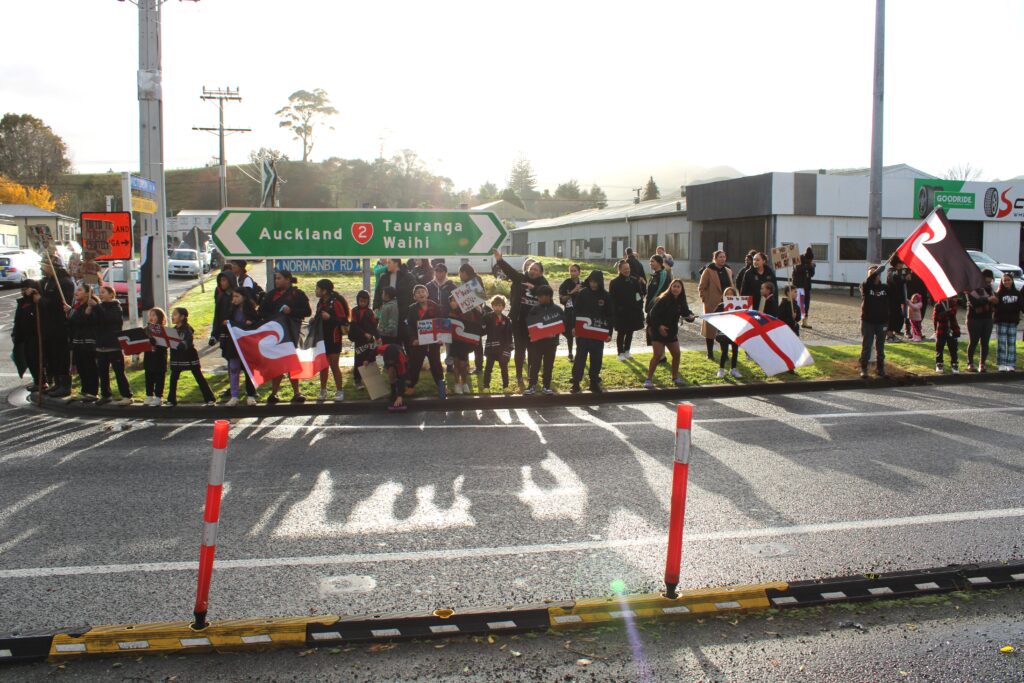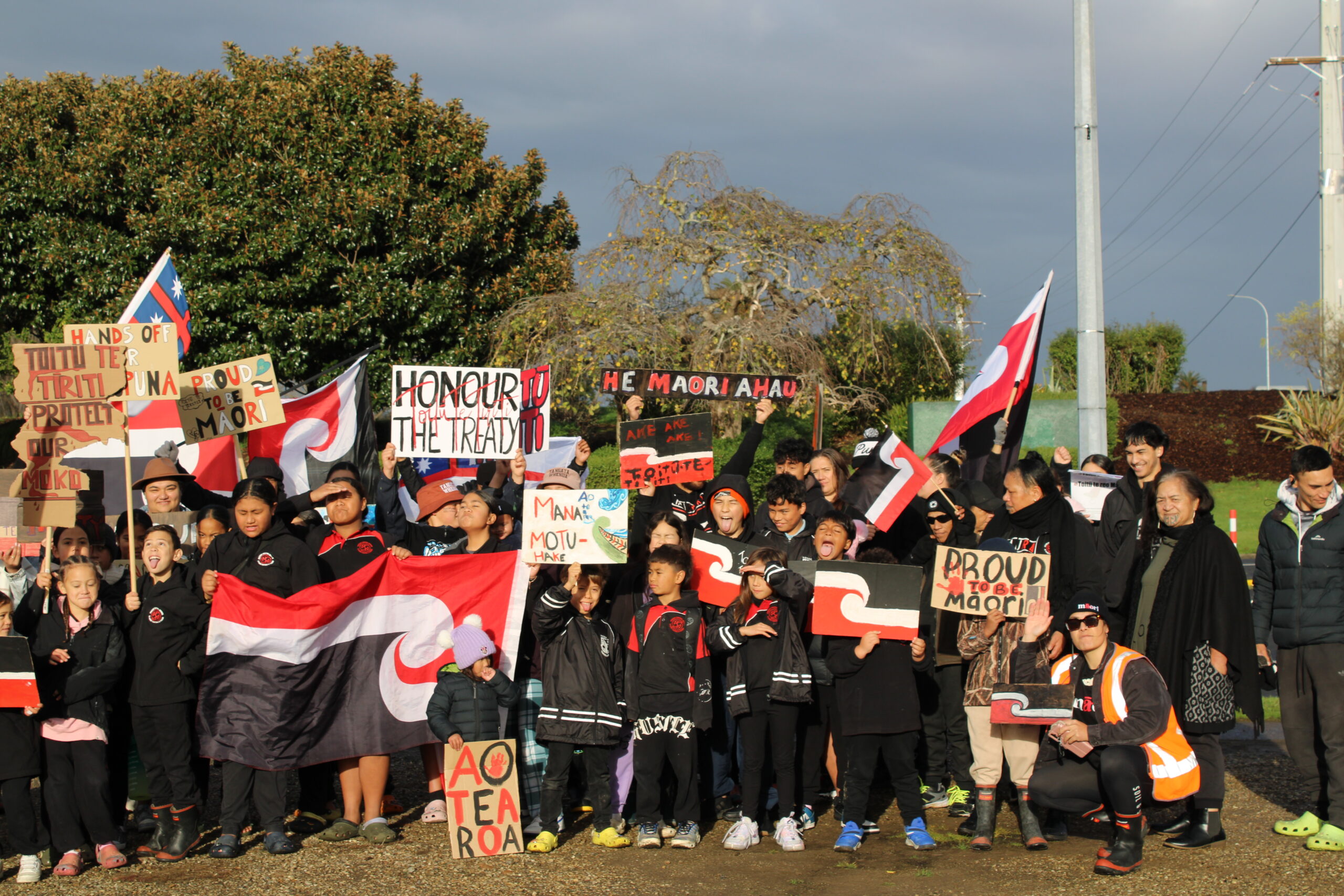More than 50 people gathered in Paeroa on May 30 as part of nationwide action or hikoi organised by Te Pāti Māori and Toitū Te Tiriti to protest against the government‘s proposed changes to legislation affecting Māori.
People across the country showed up to attend hikoi or rallies in their regions, which also included demonstrations in Thames, Ngatea and Waihī.
In Paeroa, adults, children, and whānau sang waiata, held up banners and waved Tino Rangatiratanga flags while passersby offered honks and waves of support at the roundabout intersecting State Highways 2 and 26.
Paeroa hīkoi co-coordinator Hinemoana Collier told The Profile the call was to “urge our people to oppose our coalition government” regarding the proposed repeal of Section 7AA of the Oranga Tamariki Act 1989, the fast tracking approval bill and removal of Te Aka Whai Ora Māori Health Authority.
The day was an “opportunity for us to make history and to include our tamariki and be a part of this”, she said.

Paeroa protestors started just before 8am with a karakia.
At 9am the group finished with waiata and karakia, then made their way over to join the Thames hikoi at Victoria Park.
Toitū Te Tiriti, or Honour the Treaty movement, and Te Pāti Māori called for Māori and non-Maori to join in the action by going on strike to demonstrate “a unified Aotearoa response to the government’s assault on Tangata Whenua and Te Tiriti o Waitangi”.
They said the kaupapa (cause) was about “asserting the mana of Te Tiriti o Waitangi as enduring and everlasting”.
Prior to the nationwide action, Prime Minister Christopher Luxon said it was “entirely wrong” and “illegal” for Te Pāti Māori to be encouraging people to take the day off work.
“Feel free to protest – that’s what we have weekends for,” he said in a media conference.
People were free to protest as they want – “as long as it’s legal and peaceable and it’s lawful”, he said.




